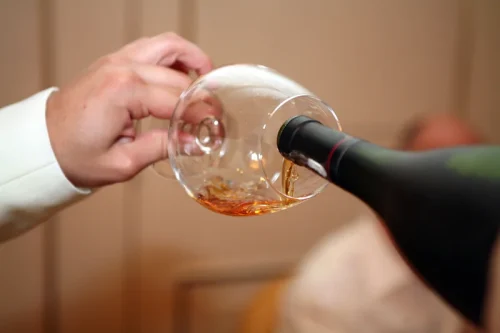
The benefits and rewards of healthy routines will naturally arise and reinforce our new behavior. If we cannot find the benefit or reward, it’s time to look at a new response or routine. Over time, these habits will quicken our calm and support our sobriety.
Emotional return to use
- Talking to a supportive person, distraction, or relaxation can help relieve the pressure.
- The model suggests seeking counseling, attending support groups, and learning new coping mechanisms such as exercise or meditation to achieve this goal.
- Three peer-reviewed publications were identified, and all reported an intervention targeting relapse prevention following GSH which included monthly telephone follow-up calls.
- Routines build structure and stability, grounding individuals in good habits while providing them with more opportunities for success than failure.
- Physical relapse is only preventable if you avoid high-risk situations.
- It could include environmental factors, social pressures, or personal issues that your loved one may be struggling with that require support.
It also helps train your body to reduce post-acute withdrawal symptoms in the weeks or months after getting sober. If a person does return to using substances, they should speak with a healthcare professional who can help them resume their treatment plan, modify it, or start a new one. For some individuals, being around particular places, circumstances, or people may increase the likelihood of them returning to use. Understanding which environmental factors are likely to cause a person to reuse can help them avoid these situations and prevent returning to use. Sometimes they are brought on by triggering events or situations, such as stress or major life events.

Building Your Personal Relapse Prevention Plan
- Discussions often revolve around dealing with everyday situations without turning to substances.
- In a study published in the Journal of the American Medical Association, relapsing in substance use disorders was compared to relapsing among those suffering from hypertension and asthma.
- Addiction affects not only the individual struggling with substance use disorder but also their loved ones.
- If we would consider why we made the change in the first place, we would remember how the old behavior made us feel worse.
- A treatment center will attempt to verify your health insurance benefits and/or necessary authorizations on your behalf.
Unlike systematic reviews, scoping reviews are helpful when identifying, reporting, and discussing specific characteristics and concepts across papers or studies (Munn et al., 2018). They provide baseline data about the availability of evidence on a particular topic (Lockwood et al., 2019), such as relapse prevention following GSH. Scoping reviews are exploratory in nature, aiming to address broader questions about the current literature rather than specific inquiries and questions (Munn et al., 2022).

Developing an Effective Action Plan For Relapse Prevention
Our team does their best for our readers to help them stay informed about vital healthcare decisions. Addiction Resource team has compiled an extensive list of the top drug rehabilitation facilities around the country. Click on the state you are interested in, and you’ll get a list of the best centers in the area, along with their levels of care, working hours, and contact information. By knowing the triggers, the patient can put mitigation measures in place.
Make a Reminder of Warning Signs
Regardless of whether these skills were developed in collaboration with a therapist at the start of treatment or at the start of the relapse prevention intervention, or through a more generalised plan, they remained helpful to maintain recovery over time. Having access to written information that is tailored to an individual’s problems has formally been identified as helpful in enabling self-management across various conditions (Dineen-Griffin et al., 2019; Liddy et al., 2014). By ensuring individuals have the appropriate resources to help them independently manage their condition, the immediate benefits of recovery following GSH can be maintained. However, it is important to note that the lack of information about the development of the relapse prevention interventions deters understanding of the development process. In addition, the benefits and challenges of different intervention development approaches in this topic is scarce. This review addresses relapse prevention for individuals with anxiety and/or depression symptoms after GSH through the inclusion of peer reviewed publications and other resources.
It can serve as a source of inspiration and help strengthen one’s resolve when it’s weakening. In addition, it can be helpful to weigh the pros and cons of quitting and even write them down as a part of the relapse prevention plan to regularly reinforce the decision. Patients are encouraged to review this list when they need motivation or experience triggers. Addiction is a brain disease and, as such, may involve disruptions to certain brain circuits and neural processes as a result of chronic drinking and/or drug use. Pathways involved in how a person feels pleasure and processes rewards, memory, and decision-making can be altered through substance abuse.
FAQs about Helping Your Loved One Create A Relapse Prevention Plan: A Family-Centered Approach

Tell your support system that you’re working on a relapse prevention plan, and ask for input. As outsiders, they may help you identify relapse triggers you’ve overlooked. They may also be eager to be contact points as you craft your trigger responses.
It’s also important to know when to ask for help again if you need it. After all, relapse doesn’t mean you have failed; it means you need more support and treatment. Groups like Alcoholics Anonymous, Narcotics Anonymous, and SMART Recovery provide invaluable help, resources, and substance abuse group activities. They also offer relapse prevention skills a safe space for group members to talk about their struggles and learn to cope without substances. Setting up a system to reach out if they sense you may be heading toward a relapse might also be helpful. This way, you can ensure that someone will be there to remind you of the benefits of sobriety and provide support.

IOP at ASIC Recovery
A relapse may look different for each person, depending on how much they use and the circumstances surrounding the relapse. Regularly review and update your plan to ensure it remains relevant and effective. For example, you might have a goal of going to three SMART Recovery meetings a week or going for a run twice a week. This experience may even help you see where you weren’t doing what you should have been doing in your sobriety program (12-step-based or otherwise).
